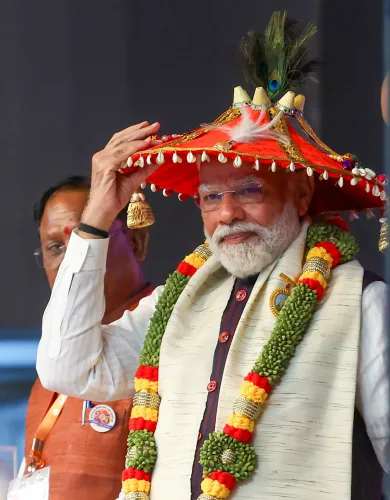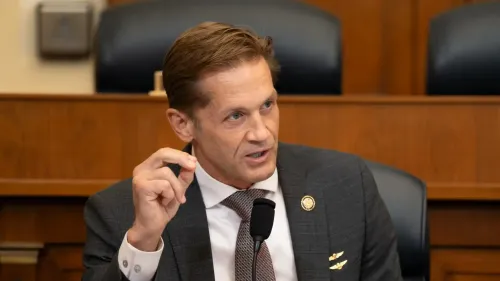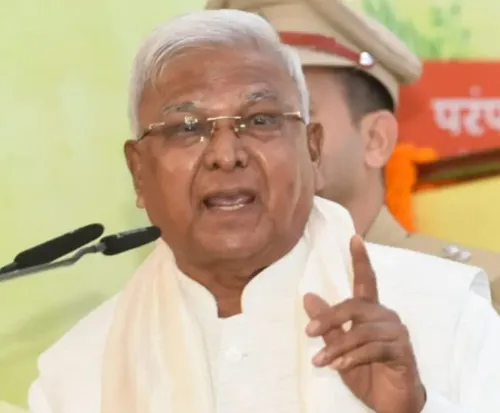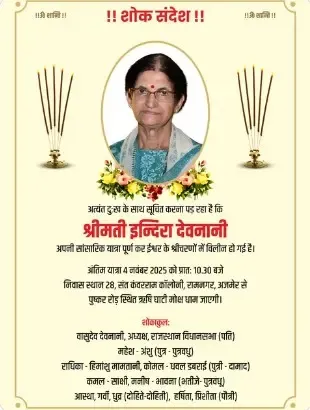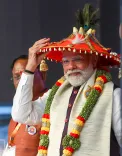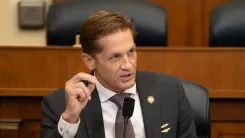Is India Committed to Peace and Prosperity? PM Modi Congratulates Sushila Karki on Her New Role as Nepal's Interim PM
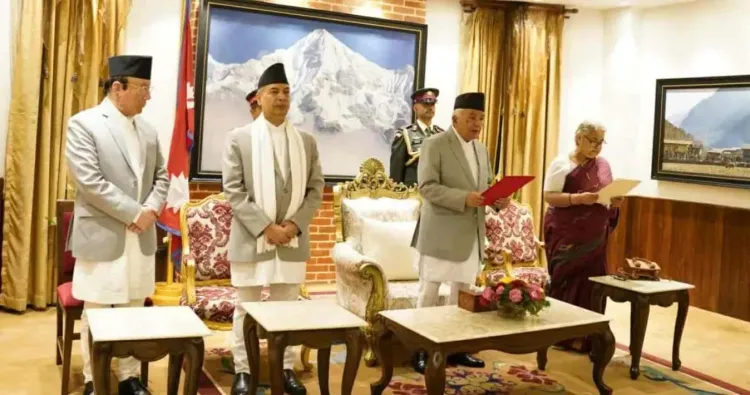
Synopsis
Key Takeaways
- Sushila Karki becomes Nepal's first female Prime Minister.
- India expresses commitment to peace and prosperity in Nepal.
- Political transition follows the fall of K.P. Sharma Oli's government.
- Constitutional questions arise regarding Karki's eligibility.
- Hope for a stable future under Karki's leadership.
New Delhi, Sep 13 (NationPress) Prime Minister Narendra Modi extended his congratulations to Sushila Karki on Saturday for her appointment as the Prime Minister of Nepal's interim government, emphasizing that India is dedicated to the peace and prosperity of the Himalayan country.
The 73-year-old Karki was inaugurated as Nepal's interim Prime Minister late on Friday, marking a historic moment as she becomes the first woman to hold this position in the nation's history.
Karki, who previously served as Nepal's first female Chief Justice, took her oath of office administered by President Ram Chandra Poudel, who engaged in extensive discussions with Gen-Z protest leaders, constitutional experts, and the Army chief on that day.
In a post on X, PM Modi remarked, "I convey my heartfelt wishes to Right Hon. Mrs. Sushila Karki on her inauguration as the Prime Minister of Nepal's Interim Government. India is resolutely committed to the peace, progress, and prosperity of the Nepalese people."
Earlier that day, India praised the establishment of a new interim government in Nepal under Sushila Karki's leadership, expressing optimism that this political transition would enhance peace and stability.
In its statement, the Ministry of External Affairs (MEA) reaffirmed its dedication to strengthening relations with Kathmandu during this transformative period.
"We welcome the formation of a new Interim Government in Nepal, led by Right Honourable Mrs. Sushila Karki. We hope this will promote peace and stability," the MEA stated.
The ministry further noted, "As a close neighbor, a fellow democracy, and a long-term development partner, India will continue to collaborate closely with Nepal for the well-being and prosperity of our two nations and peoples."
Following the collapse of the K.P. Sharma Oli-led government due to the violent Gen-Z protests on Monday, Karki emerged as the favored choice of activists who had taken to the streets in opposition to Oli's governance.
Negotiations with Gen-Z protesters and other stakeholders regarding the dissolution of the House of Representatives, the lower house, were extensive before the new Prime Minister's swearing-in.
Despite several non-political names being suggested as alternatives, the Gen-Z protesters endorsed Karki's name, facilitating her appointment as Prime Minister.
However, there is no constitutional provision that allows anyone who is not a member of the House of Representatives to assume this role. Karki's appointment was made under the "principle of necessity."
According to Article 76 of Nepal's Constitution, only a member of the House of Representatives can be Prime Minister. This clause excludes Karki, as even members of the National Assembly, the upper house of Parliament, are barred from assuming the role.
Additionally, Article 132 (2) of the Constitution prohibits her from becoming Prime Minister, stating that no person who has previously held the office of Chief Justice or Judge of the Supreme Court shall be eligible for appointment to any government position, except as otherwise stated in the Constitution.

